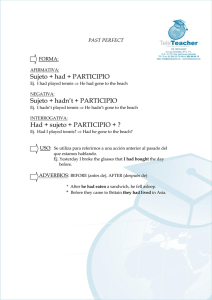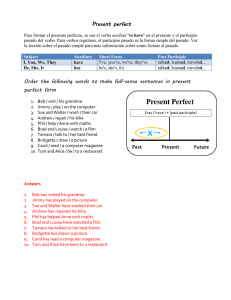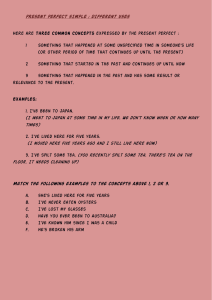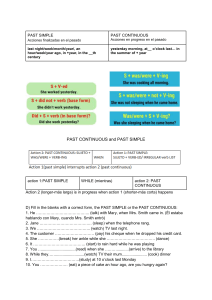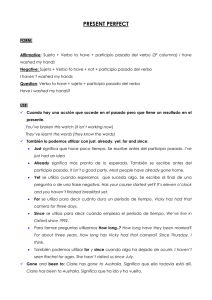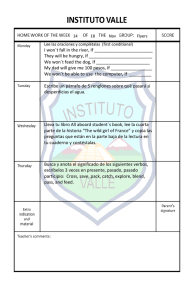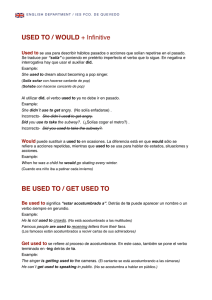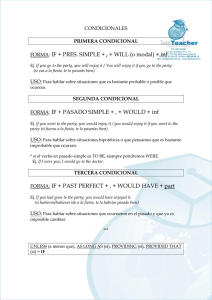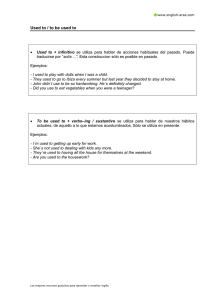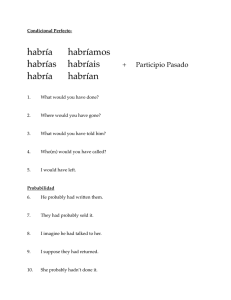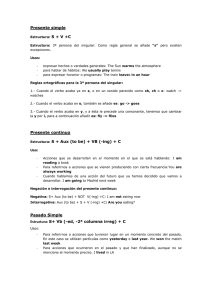present perfect
Anuncio
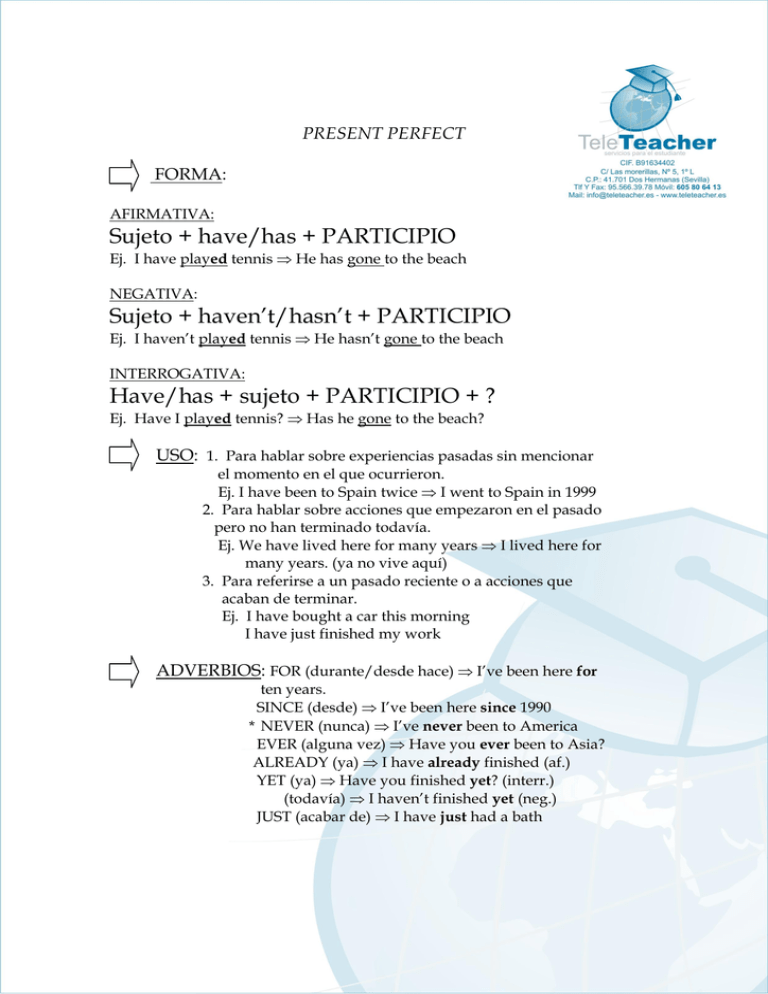
PRESENT PERFECT FORMA: AFIRMATIVA: Sujeto + have/has + PARTICIPIO Ej. I have played tennis ⇒ He has gone to the beach NEGATIVA: Sujeto + haven’t/hasn’t + PARTICIPIO Ej. I haven’t played tennis ⇒ He hasn’t gone to the beach INTERROGATIVA: Have/has + sujeto + PARTICIPIO + ? Ej. Have I played tennis? ⇒ Has he gone to the beach? USO: 1. Para hablar sobre experiencias pasadas sin mencionar el momento en el que ocurrieron. Ej. I have been to Spain twice ⇒ I went to Spain in 1999 2. Para hablar sobre acciones que empezaron en el pasado pero no han terminado todavía. Ej. We have lived here for many years ⇒ I lived here for many years. (ya no vive aquí) 3. Para referirse a un pasado reciente o a acciones que acaban de terminar. Ej. I have bought a car this morning I have just finished my work ADVERBIOS: FOR (durante/desde hace) ⇒ I’ve been here for ten years. SINCE (desde) ⇒ I’ve been here since 1990 * NEVER (nunca) ⇒ I’ve never been to America EVER (alguna vez) ⇒ Have you ever been to Asia? ALREADY (ya) ⇒ I have already finished (af.) YET (ya) ⇒ Have you finished yet? (interr.) (todavía) ⇒ I haven’t finished yet (neg.) JUST (acabar de) ⇒ I have just had a bath
